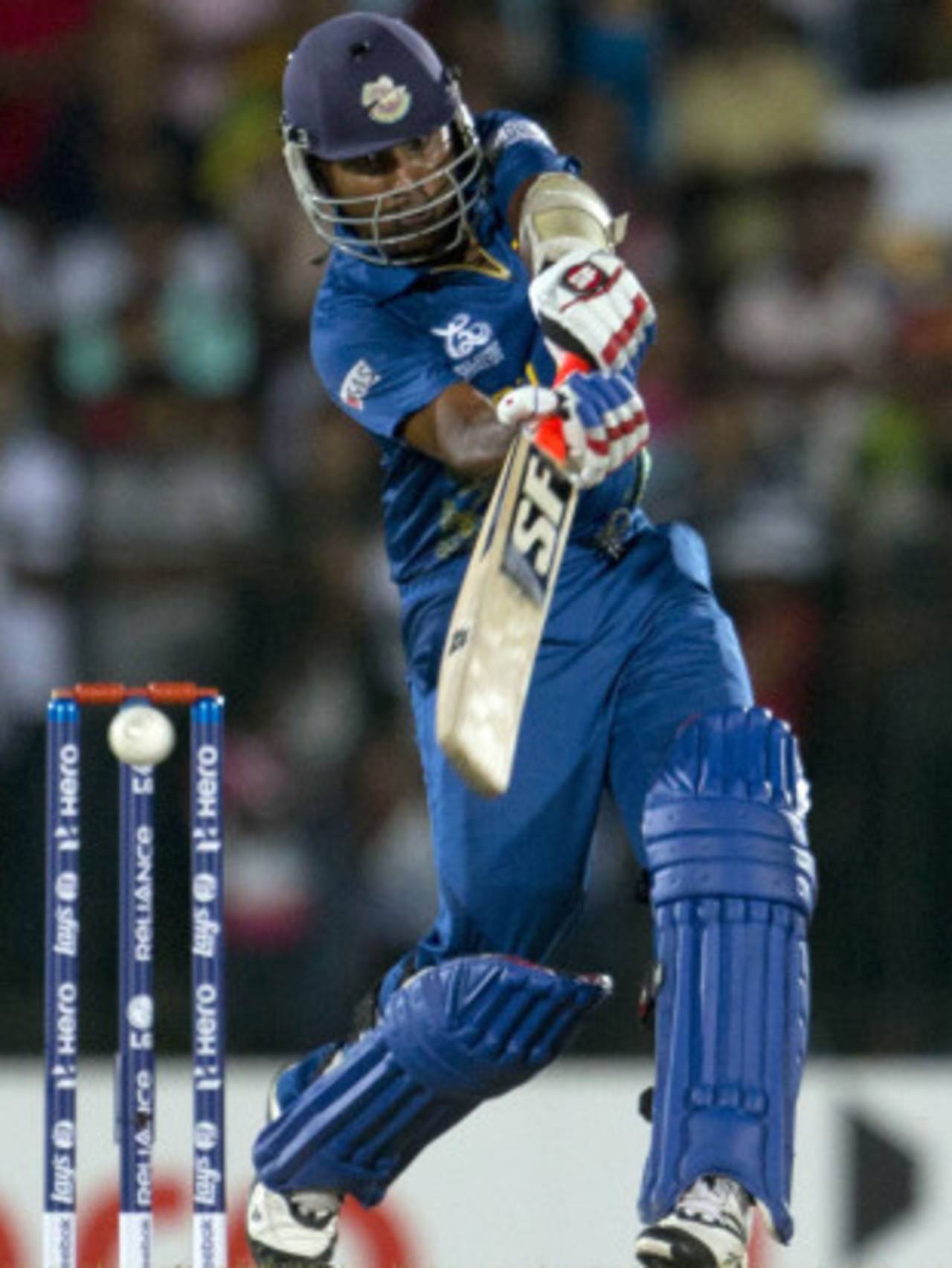Much of the reason Sri Lanka are deemed favourites for the World Twenty20 is because they have intimate knowledge of the conditions they will be playing in - or at least, they are supposed to. Often touring teams have been undone by Sri Lanka sides who have developed strengths that are amplified by the surfaces they play on, and opponents go home cursing conditions so foreign from their own.
But on a soggy night in Hambantota, it was South Africa that read the pitch, and the match situation, better than the home side. The heavy rain that had preceded the 7-over match cranked up the liveliness of the surface and ensured the ball would move in the air as well. Twenty20 cricket is usually not a great advertisement for length bowling, but that's where
Dale Steyn and Morne Morkel stayed, knowing that on this pitch, with batsmen attacking every delivery, a little movement off the seam would be the difference between a batsman mis-hitting the ball and being clobbered to the fence. Sixteen dot-balls and seventeen singles from 42 legitimate deliveries proved them right. Sri Lanka managed only four fours in their innings.
"I thought we assessed conditions better tonight," captain AB de Villiers said after the match. "I think we were quicker on the button than them. We're enjoying the wickets - there was a bit of bounce and seam but what made us play well was the energy and intensity the bowlers had at the crease. You've got to put it in to get it out and that's what they did."
Sri Lanka meanwhile stuck with the yorkers, short balls and variations that would usually bring results in this format, missing the opportunity to exploit the spice in the pitch. Two bowlers were allowed to bowl more than one over, and
Mahela Jayawardene picked Lasith Malinga, who does not seam the ball and Rangana Herath, a spinner, to perform that task. Seamers Nuwan Kulasekara and Angelo Mathews, however, had bowled two of the three cheapest overs in the innings.
Even with the bat, South Africa read the game better than their opposition. De Villiers' 13-ball 30 might have seemed like mayhem, but as he revealed afterwards, his hitting was thoughtfully borne. Malinga's slower bouncer is among the most difficult to pick in world cricket, but if you're expecting it, as de Villiers was in the sixth over, it can still be hit for six.
"I don't think that's the best ball he's ever bowled, but I knew he had a slower ball in him. He had three options with that field. It's either a slower short ball, a normal bouncer or a full yorker. And it turned out to be that slower short ball. I was expecting it and I got a bit of momentum out of the shot."
South Africa may have been aided by a familiarity with shortened matches as well. Less than two weeks ago at Edgbaston they lost an 11-overs-a-side encounter against England and that experience helped them prepare for another curtailed match half a world away.
"We had a little chat before we started because it's not easy to keep the focus with all the rain. We spoke about what we learned from England and it was fresh in our minds when we went out. I think that definitely helped.
"You can get a reduced over game at any time. It could happen in the final. We're ready for that now. It's still a short version of the game you've just got to think on your feet and be brave."
The shorter the match, the quicker teams must adapt. The rain before the cricket broke an eight-month drought in the area around the ground. The downpour may have been unexpected, but South Africa's response to it was swift and exact. With the north-east monsoon approaching, and the focus moving to wetter parts of the country, Sri Lanka will hope they've learnt the same lessons their opponents had picked up.
